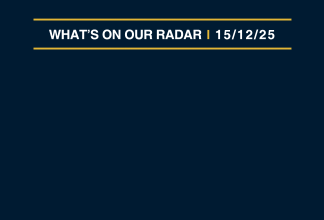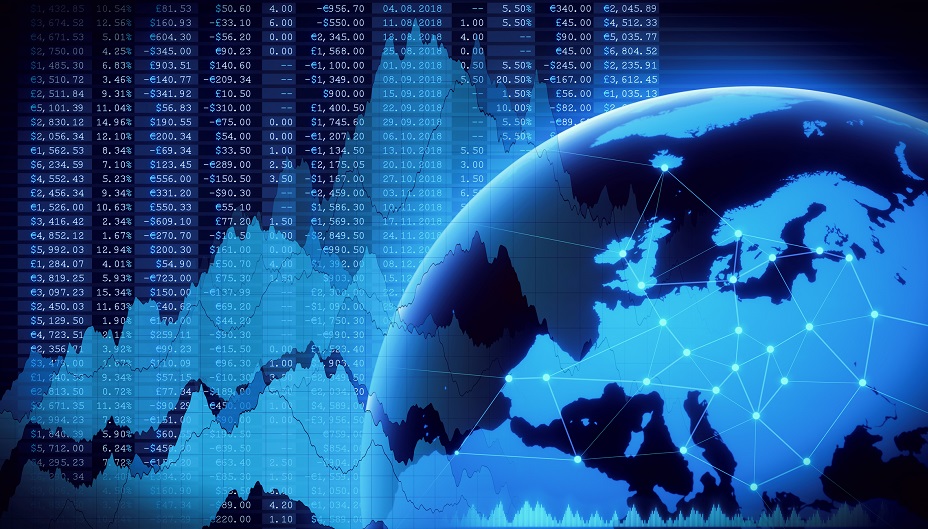What Russia’s Invasion of Ukraine Could Mean for the Market and the Economy
Written by The Inspired Investor Team
Published on March 9, 2022
minute read
Share:
As Russia's attack on Ukraine reverberates around the world, individuals, governments, corporations, financial markets and global economies are facing uncertainty on many levels.
With the situation unfolding rapidly, economists at RBC are closely watching events to help shed light on new developments and decipher market and economic implications.
Eric Lascelles, Chief Economist of RBC Global Asset Management, wrote about the implications of Russia's invasion of Ukraine in his latest MacroMemo update. Read on for a number of key points from his March 1 report.
Market implications
The financial market hit within Russia has been enormous. The country's currency is down by around 50 per cent since October. Its stock market was down by over 40 per cent before closing for an extended period. The situation is quite bad for Russian companies on any number of fronts – they lose access to foreign markets, lose access to key inputs and cannot as easily fund themselves.
Western companies will also suffer some losses as they lose ready access to the Russian market. Some companies must divest themselves of Russian investments or partnerships.
Commodity prices are naturally higher given Russia's status as a key commodity producer and exporter.
While the conflict is hardly good news for economies or companies, let alone the participants in the war, financial markets have already substantially adjusted. Historically, the stock market fully prices in acts of war with remarkable haste, bottoming within a few days to at most a few weeks of the onset of the conflict, and then recovering to prior levels within a few weeks to a few months. No two conflicts are ever the same and this one appears bigger than many, but it is not without precedent.
Economic implications
That brings us to the economic implications. Curiously, while the economic outlook is no less certain than the military outlook, it doesn't actually depend much on the military outlook. This is because most of the theoretical economic damage at the global level comes from sanctions, and those sanctions are unlikely to be lifted quickly even if the military conflict is somehow resolved rapidly. Instead, the uncertainty about the economic outlook revolves mainly around whether energy and food exports will be restricted from Russia.
Global economy
Arguably of greatest relevance to most investors is the economic impact on the global economy. Russia's share of global GDP is just 1.7 per cent, making its economic pain visible but not overwhelmingly influential for global growth.
What about the rest of the world?
The direct economic damage from exporting fewer products to Russia is likely to be fairly small. Russia just isn't a big driver of global demand.
Financial conditions should be somewhat tighter. Risk assets such as the stock market are down and credit spreads are wider, but this could be partially offset by slightly less hawkish (non-Russian) central banks in the short run. More on that shortly.
Finally, and of the greatest relevance by far, commodity prices are substantially higher as a result of the war. This is the main economic channel that must be considered. It is also the most uncertain. Prices are already elevated but would spike further if Russian exports of energy and/or food were suddenly restricted.
Russia is a large exporter of oil, natural gas, wheat, potash (even more so when Belarus is included), aluminum and copper. Indeed, it is the world's largest exporter of natural gas and the second-largest exporter of oil. This is of particular relevance to Europe, which imported 47 per cent of its natural gas from Russia in the first half of 2021. Russia also supplies nearly 10 per cent of the world's aluminum and copper, and a huge 43 per cent of palladium (a component in motor vehicles). Russia and Ukraine combined produce 29 per cent of the world's wheat exports.
Europe is clearly the most vulnerable region economically, despite several positives:
- Germany has some capacity to pivot to coal and perhaps nuclear.
- The continent has sizeable energy stores.
- Europe has some access to international liquid natural gas shipments.
- Energy imports are set to drop as the weather warms.
A scenario of moderately elevated commodity prices in the relevant resources would subtract on the order of 0.2 per cent to 0.5 per cent from global growth, with Europe at the more impacted end.
However, should Russian commodity exports be seriously pinched – so far, this is mostly a fear rather than a reality – commodity prices could rise significantly further. The name of the game so far has been escalation by both sides. Germany has indefinitely paused the activation of a major new gas pipeline from Russia. Should Russian energy exports be seriously halted, the damage to European GDP might be as much as four times greater – approaching a drop of 1 percentage point (ppt) from the rate of global economic growth and 2 ppt from the rate of European economic growth.
At a more granular level, it is quite possible that the Eurozone could suffer a negative quarter of growth somewhere in the mix, though a recession is unlikely barring an extreme stop in the supply of energy.
The risk of recession is obviously higher as a result of the new conflict. Whereas traditional models argue the risk of a U.S. recession over the coming year is no higher than 10 per cent, we have been inclined to think it is more like 25 per cent when one factors in geopolitical issues, the risks surrounding monetary tightening, plus a generally aging recovery.
It must be conceded that the commodity shock is not a negative for everyone. Oil-exporting regions of the world are set to do quite nicely. Canada's oil-rich Alberta, for instance, now appears to be on track for its first balanced budget since 2014 – the last time oil was in the realm of triple digits.
Inflation and monetary policy
Despite the anticipated economic damage, this is an inflationary shock. Commodity prices have risen. They could rise further, depending on the supply of energy and other commodities from Russia. A conservative estimate would be an additional 0.5ppt to the rate of inflation over the next few months. An aggressive estimate – assuming significant supply restrictions – might add several percentage points.
Central banks have a dilemma. Do they raise rates more because inflation is set to be higher, or less because growth will be weaker and risk assets have tumbled? It seems more likely that central banks will tighten more cautiously. Case in point, U.S. market expectations were for nearly 50 basis points (bps) of tightening as of just a few weeks ago, whereas they have now retreated to a single 25bps rate increase. This seems about right. If needed, central banks can catch up later. (The Bank of Canada raised its key rate by 25 basis points on March 2.)
In all of this, we emphasize it is still early days: a significant change in the path of the war, or a significant change in sanctions or the supply of commodities could radically alter the trajectory relative to this discussion.
Bottom line
The bottom line is that this war between Russia and Ukraine is extremely serious. In addition to the lives and livelihoods at risk, there are real global economic consequences. These consequences will be expressed mainly through the channel of high commodity prices and the supply of commodities.
The situation is still quite fluid. The big economic question is centered more on whether energy and food exports will be restricted rather than the precise duration or scale of the war itself.
Find the full MacroMemo updates at rbcgam.com/macromemo.
RBC Direct Investing Inc., RBC Global Asset Management Inc. and Royal Bank of Canada are separate corporate entities which are affiliated. RBC Direct Investing Inc. is a wholly owned subsidiary of Royal Bank of Canada and is a Member of the Investment Industry Regulatory Organization of Canada and the Canadian Investor Protection Fund. Royal Bank of Canada and certain of its issuers are related to RBC Direct Investing Inc. RBC Direct Investing Inc. does not provide investment advice or recommendations regarding the purchase or sale of any securities. Investors are responsible for their own investment decisions. RBC Direct Investing is a business name used by RBC Direct Investing Inc. ® / ™ Trademark(s) of Royal Bank of Canada. RBC and Royal Bank are registered trademarks of Royal Bank of Canada. Used under licence. © Royal Bank of Canada 2022.
Any information, opinions or views provided in this document, including hyperlinks to the RBC Direct Investing Inc. website or the websites of its affiliates or third parties, are for your general information only, and are not intended to provide legal, investment, financial, accounting, tax or other professional advice. While information presented is believed to be factual and current, its accuracy is not guaranteed and it should not be regarded as a complete analysis of the subjects discussed. All expressions of opinion reflect the judgment of the author(s) as of the date of publication and are subject to change. No endorsement of any third parties or their advice, opinions, information, products or services is expressly given or implied by RBC Direct Investing Inc. or its affiliates. You should consult with your advisor before taking any action based upon the information contained in this document.
Furthermore, the products, services and securities referred to in this publication are only available in Canada and other jurisdictions where they may be legally offered for sale. If you are not currently resident of Canada, you should not access the information available on the RBC Direct Investing Inc. website.
Explore More

7 Ways to Get Ahead Financially in 2026
How you might invigorate your finances and put your money to work more intentionally this year
minute read

Economic Outlook: Uncertainty is Here to Stay, So What's Next?
Takeaways from the Economic Club of Canada’s Annual Event
minute read

3 things: Week of December 15
What the Inspired Investor team is watching this week
minute read
Inspired Investor brings you personal stories, timely information and expert insights to empower your investment decisions. Visit About Us to find out more.







